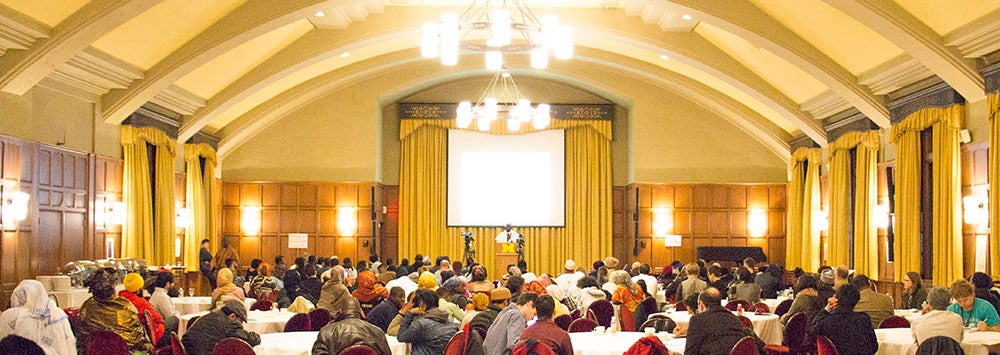Knowing Islam: An Interdisciplinary Seminar on Muslim Epistemology
IKHLAS—sincerity in Arabic—is the name conventionally given to the 112th sura of the Qurʾan. Its verses proclaim God’s radical oneness (tawhid), thereby establishing the axis upon which religious thought in Islam turns. It is also, for many Muslims, a near synonym for ihsan—spiritual excellence or piety— and thus intimately tied to values that are social and political as well as religious and intellectual: the pursuit of truth and beauty, justice and dignity. These virtues are in turn embodied, in Islamic thought, in the figure of the Prophet Muhammad, the source, embodied example, and center of contemplation for Muslim approaches to knowing God. For centuries the traditional religious sciences of Islam (al-ʿulum al-diniyya) have sought to explore these ideas, ideals, and values. Nurtured in Qurʾan schools, majlis study circles, craft apprenticeships, and Sufi lodges, the transmission of the sciences has been vital to building Muslim societies. And while Islamic knowledge practices have shifted greatly over time and have displayed stunning variety across regions, they also continue to manifest a profound persistence, tenacity, and unity-in-diversity.
In this, its first international collaborative graduate training seminar, the IKHLAS research initiative will explore the epistemological bases of the traditional religious sciences, using them as a prism to help illuminate the conception, constitution, and transmission of Islamic ways of knowing. Our aim is to explore the constitution and contestation of those core disciplines that have most shaped Muslim sensibilities and societies around the globe and through the ages: Qurʾan memorization (hifz) and exegesis (tafsir), hadith, theology, Sufism and jurisprudence, and the histories of Prophets and angels, men and jinn
Knowing Islam:
The verbal phrase that gives this seminar its title is a double entendre. In the first of its senses, Islam is the subject and knowing the modifier, highlighting Muslim societies as places of cognition, reflection, and meaning-making. Muslims are knowing subjects, and the primary goal of this seminar is to provide graduate students in North American, European, and Middle Eastern doctoral programs with an intensive initiation into the epistemologies of the traditional religious sciences of Islam; this seminar is foremost an exploration of knowledge practices in according to their own internal logics.
But in a second reading of Knowing Islam, Islam is the object of the verb. This reading draws our attention primarily to the construction of often-competing knowledges about Islam, highlighting the fact that Islam’s spatial, moral, and conceptual boundaries have been delineated—even brought into being—through the activities of diverse intellectual communities without the faith. Exploring the second process, the production of Islamicist knowledge—is the secondary goal of this seminar.
The format will be to bring together leading scholars in the field of Muslim epistemology from a variety of disciplinary backrounds (history, anthropology, religious studies, political science, art history, philosophy) as well as graduate students that are developing dissertation research firmly rooted in this field. Faculty members will direct morning and afternoon seminars that engage the topic in whatever fashion they see fit. They may pre-circulate 75-100 published pages of required reading for each session and they will present a lecture on the topic at hand for 30-45 minutes leaving no less than one hour for discussion and questions in each session.
Graduate students will workshop pre-circulated works in progress in groups of 2-3 students. Each student will have 10-15 minutes to present their research leaving ample time for discussion and critical feedback. Since this is a reading intensive seminar, all readings must be pre-circulated at least one month prior to the seminar.
Sessions will begin and end relatively early in the day in order to facilitate the remote simultaneous participation of faculty and graduate students at the in South Africa and Germany at the Universities of Capetown and Bayreuth. These sessions will be under the direction of Professors Andrea Brigaglia and Rudiger Seesemann.

